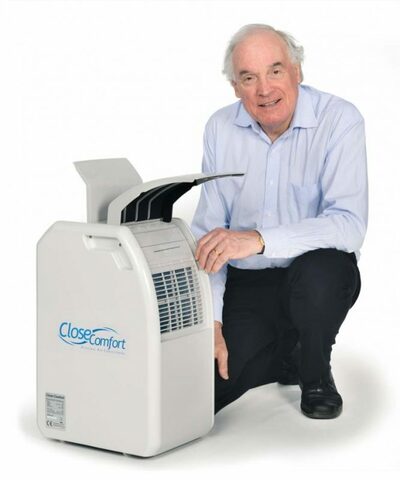In the early 2000s, James Trevelyan, while travelling in Pakistan, faced a 40-degree night when power outages rendered conventional air conditioning useless.
The oppressive heat and lack of reliable cooling solutions inspired Trevelyan—a mechatronics engineering professor based at the University of Western Australia—to develop a low-energy, portable cooling system. His innovation, now known as Coolzy, has sold over 20,000 units across 30 countries, sending him on a mission to transform personal cooling technology.
"This is the difference between sleeping and not sleeping," Trevelyan said, highlighting the need for practical cooling options in regions with unreliable energy infrastructure.
A cool idea takes shape
Coolzy began with a prototype fashioned from plywood, pipes, and wires, which was tested in Pakistan's unforgiving climate.
Operating on just 300 watts—less than most household appliances—the prototype was able to effectively cool small spaces.
Following positive feedback from locals who confirmed the concept's potential, Trevelyan forged partnerships with Chinese manufacturers to develop a scalable business model.
An energy-efficient alternative
Coolzy's design challenges the traditional method of cooling entire spaces by focusing on personal cooling.

"By just cooling the people, you avoid 90% of the energy that would go into cooling the concrete," Trevelyan said, explaining the efficiency of targeting personal comfort instead of entire rooms.
This approach reduces energy consumption to about 10% of what is required for conventional air conditioning, aligning with sustainability efforts amid rising energy costs and climate concerns.
The portable and cost-effective system has found success in its initial target markets, such as Pakistan, and has also gained traction in Australia, appealing to renters, campers, and homeowners in search of eco-friendly cooling solutions.
Challenges and milestones
Developing Coolzy into a market-ready product and establishing its global presence has presented challenges. Trevelyan notes the difficulties of scaling production in economically unstable regions and navigating informal business environments.
Despite there challenges, the product was awarded the Australian Good Design Award in 2024, which boosted the company's visibility and contributed to sales growth.
Notably, this achievement was accomplished by a small team of just six employees working across Australia and Pakistan.
"We didn't expect this. We started with no idea how to sell, and now we've sold 20,000 units in 30 countries," Trevelyan said.
A vision for global impact
Trevelyan wants to improve living conditions in areas where traditional air conditioning isn't feasible. The plan is to increase production in countries like India and Pakistan, where energy efficiency matters.
The product is also viable in developed markets, offering a portable and sustainable alternative to energy-heavy cooling systems.
"At each stage, the potential has grown, and now we believe we can improve life for hundreds of millions, if not billions, without harming the climate," Trevelyan said.
In the future, Trevelyan aims to refine its business model, expand its market reach, and remain committed to sustainability. The goal is to make efficient, eco-friendly cooling solutions accessible worldwide while protecting the planet for future generations.























